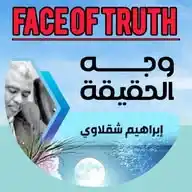
قناة وجه الحقيقة | Face of Truth 🌍
February 22, 2025 at 05:24 AM
The Face of Truth | Ibrahim Shglawi
Al-Sharq and Its Peers: The Dilemma of Neutrality and Professionalism?
The Sudanese government's decision to ban Al-Sharq TV has once again highlighted the complex relationship between press freedom and the responsibility of media coverage during crises. As events in Sudan escalate, the media has transitioned from being a mere transmitter of information to an influential force in shaping public opinion and directing the course of the war. This decision raises questions about its true motives: is it a response to a professional deviation in coverage, or is it part of broader efforts to regulate the media landscape in light of current challenges?
Given that Al-Sharq played a significant role in covering events since the outbreak of war in April 2023, the decision reflects the ongoing challenge of balancing press freedom with national security requirements. In this article, we discuss the dilemma of neutrality and professionalism, considering past instances where other media outlets faced similar bans.
The crisis with Al-Sharq began after it reported information from an unnamed source regarding amendments to Sudan’s constitutional document for 2025. The Minister of Information and official government spokesperson, Khalid Al-Aysar, described this information as false. The Sudanese government believes that some media institutions exceed their traditional roles of reporting events and instead engage in political influence, which could pose a threat to national sovereignty.
For this reason, Al-Sharq was not the only channel to be banned in Sudan. Authorities had previously suspended the operations of several international channels, including Al Jazeera, Al Arabiya, Al Hadath, and Sky News Arabia. The Sudanese government justified these bans by citing a lack of adherence to professional standards and transparency, in addition to what it described as biased coverage of events in Sudan.
In a statement issued by the Sudanese Ministry of Information, direct accusations were made against some of the banned channels, particularly Sky News Arabia, which was described as having "turned into a media mouthpiece for a terrorist militia that commits various crimes against the Sudanese people, according to 'Sudan News'." While some channels, such as Al Arabiya and Al Hadath, resumed operations after a period of suspension, there has been no mention of Sky News Arabia resuming its activities.
Reactions to the bans varied. Some saw these measures as a violation of press freedom and freedom of expression, while others argued that the banned channels had not been neutral in their coverage and had contributed to fueling the conflict by adopting certain agendas. On the other hand, supporters of the decision believe it aims to protect Sudan’s national security from external media influence.
This particular issue is one that most Sudanese observers can likely agree on. Many have closely followed these channels' coverage, which—whether deliberately or not—allowed representatives of the Rapid Support Forces militia to broadcast black propaganda based on falsehoods and deception, without any clear stance from the networks under the pretext of presenting "both sides of the story."
Observers have often noted an imbalance in opportunities, as well as instances where false narratives were aired without verification—something that could have been fact-checked by these channels' correspondents in the field. Furthermore, some networks have at times adopted the perspectives of the militia and its supporters, in addition to broadcasting numerous impactful news pieces without citing credible sources. This has negatively affected the credibility of these channels and may have created a rift between them and their audience.
In comparison, other countries have implemented similar measures against media outlets during periods of crisis and war. For instance, during the so-called "War on Terror" following the September 11, 2001 attacks, the U.S. government imposed restrictions on certain media outlets, including Al Jazeera, which was accused of broadcasting messages from armed groups. As a result, Washington limited its coverage within U.S. territory.
Similarly, in 2022, France and several European countries imposed restrictions on Russia Today and Sputnik following the outbreak of the Russia-Ukraine war, citing concerns that these outlets were spreading "propaganda" that threatened European security. In the Arab world, the Egyptian government shut down foreign news offices during political unrest, particularly following the 2011 revolution, accusing them of incitement or manipulating information.
These examples demonstrate that decisions to ban media outlets are neither new nor unique to Sudan. Rather, they are part of a complex equation in which states seek to balance national security with ensuring the free flow of information.
However, the key challenge lies in the objectivity of such measures and the extent to which media channels themselves adhere to professional standards when covering events without bias.
Therefore, to ensure that media channels fulfill their role in reporting events with neutrality and professionalism, they must adhere to the standards under which they were granted operating licenses. Negotiations with state authorities should take place to establish a framework for cooperation, enabling these networks to adjust their editorial policies and obtain new licenses.
At the same time, Sudanese media regulators must approve clear and encouraging policies for the media and journalists, recognizing that the quality of media content depends on cooperation between all stakeholders in the public interest. Additionally, alternative media should be strengthened and its capabilities enhanced. The expected rise of independent and digital media platforms may further reshape Sudan’s media landscape.
The most pressing question remains: how can Sudan strike a balance between press freedom and national security? The media plays a crucial role in promoting stability and peace, but can its coverage remain realistic without restrictions?
The government must find a way to uphold press freedom while ensuring that the public's right to information is not curtailed. The challenge lies in safeguarding media freedoms on the one hand and protecting national security on the other, while ensuring that media institutions uphold professional standards to provide objective and balanced coverage of Sudan’s realities.
Wishing you well and in good health.
Saturday, February 22, 2025
[email protected]